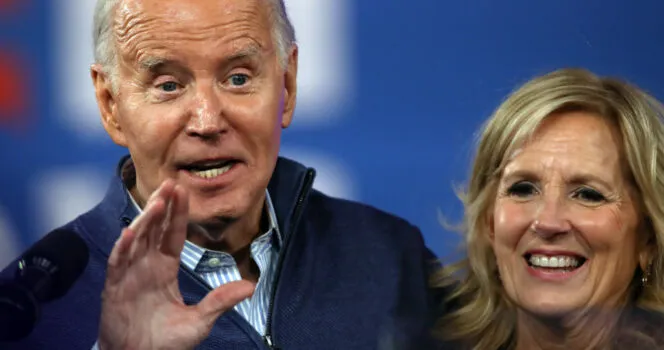In the dynamic realm of politics, where campaign slogans and rally anthems often dominate, Celine Dion has made a significant stand against the misuse of her music. The iconic singer, renowned for her powerful voice and stage presence, has firmly opposed former President Donald Trump’s use of her work without permission, making it clear that she values her artistic integrity above all else.

Trump’s Unauthorized Use of “My Heart Will Go On”
During a rally in Montana, Trump and his running mate added a surprising element to their playlist: a video of Dion performing “My Heart Will Go On,” the famous theme from Titanic. While this choice could be interpreted as a testament to Dion’s lasting appeal and the emotional weight of her music, Dion and her management team saw it as a violation of her rights and a disregard for her creative control.
Dion’s Swift Response and Strong Stance
In response to this unauthorized use, Dion’s team promptly issued a statement clarifying that Trump had no permission to use her music for political purposes. They also questioned why Trump had selected that specific song. Dion’s reaction was immediate and resolute—she refused to allow her work to be used in such a manner, emphasizing her commitment to preserving her artistic legacy.
A Larger Movement for Artists’ Rights
Dion’s firm stance is part of a broader movement where celebrities and public figures are increasingly asserting their rights against political misuse of their work. Numerous artists have taken similar actions, with The Rolling Stones demanding Trump cease using their songs and Rihanna objecting to her music being played at his rally. This collective pushback sends a clear message: artists will not tolerate the unauthorized use of their creations for political gain.
The Cultural Shift Towards Authenticity and Integrity
This trend signals a significant shift in the cultural landscape, where the boundaries between entertainment, fame, and politics are becoming more blurred. As the public becomes more discerning, there is a growing demand for authenticity and respect for artistic integrity. Navigating this intersection is delicate, as shown by Dion’s dispute with Trump. Political figures must respect intellectual property rights while engaging with cultural elements to connect with the public.

The Importance of Protecting Artistic Expression
For high-profile artists like Dion, it is crucial to protect their creative work from exploitation while engaging responsibly in the political sphere. This requires a deep understanding of copyright laws and a keen awareness of public sentiment. Dion’s actions highlight the significance of maintaining creative autonomy and the potential influence of celebrities in shaping public discourse.
The Ongoing Impact of Dion’s Actions
Celine Dion’s bold refusal to allow her music to be used without consent has sent ripples through the political world, reinforcing the importance of artists’ rights. As we move forward, it will be interesting to observe how other cultural influencers respond to similar situations. Will they, like Dion, use their platforms to uphold their creative independence and demand accountability from political leaders? Or will the lure of exposure and influence sway them otherwise?
This unfolding narrative underscores the evolving relationship between politics and pop culture, where artistic expression, intellectual property, and civic involvement are increasingly intertwined. Dion’s stand serves as a powerful reminder of the influence held by those who dare to defend their creative rights.



